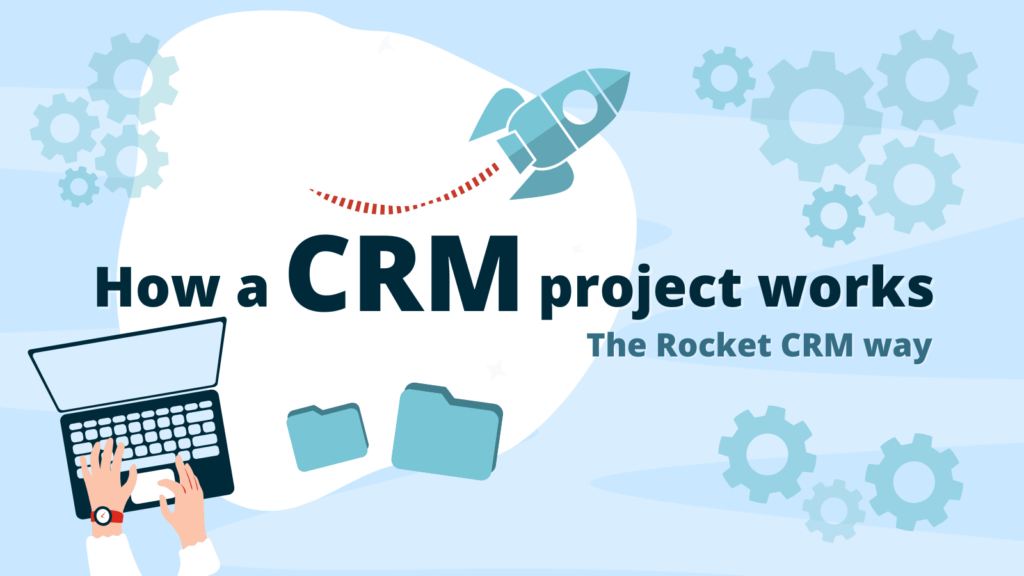CRM projects can be quite challenging, especially for smaller organisations and charities. If you’ve been a part of a CRM implementation in the past, you know how complex things can get and how delicate a CRM project can be. On the surface, it may all seem like a simple software solution, but the inner workings of CRM require meticulous project management.
Through careful planning and risk management, two common nightmare scenarios can be avoided: implementing a bad CRM that does not meet the needs of the organisation or implementing a good CRM badly. In both cases, you end up wasting time, money, and resources.
For this reason, smaller organisations and charities need guidance and expert specialist skills throughout their entire CRM journey, which heightens the importance of selecting the right CRM partner.
Why partnering with an expert is your smartest move
If you’re a small business or a charity, undertaking a CRM project can be a very tricky situation to navigate. A CRM project inevitably has to deal with complexities that usually come in the form of data migration, user training, system integration, or change management – all CRM concepts that you may have little or no prior experience in. With the steering and support of an experienced CRM partner who can do the heavy lifting for you, you will have a lot less to worry about, and the risk of failure will be significantly reduced.
How Rocket CRM approaches CRM project management
Rocket CRM applies a systematic approach to CRM project management that allows them to zero in on any specific challenges before executing a plan of action. This results in a bespoke approach to your overall CRM management – one that is customised for your organisation’s unique needs.
What does a CRM project look like?
A CRM project typically begins when a customer signs up with their chosen partner to build a CRM application. The initial stages would often focus on understanding your requirements and measuring the project in terms of the days needed to deliver the agreed product, which varies drastically depending on the size of the project.
The cost and time needed are determined by the kinds of functionalities you will need. You may only need a simple, out-of-the-box solution, which you can get up and running in a matter of days or weeks. However, you might require a more complex solution that meets the needs of various teams and stakeholders, and these more complex requirements take more careful planning and scoping.
When and why a scoping project is needed
If you have clearly defined requirements, it’s simpler to agree upon an estimated number of days for a CRM project while remaining open to the possibility of pricing and scheduling adjustments, especially when new requirements are uncovered along the timeline.
In other cases, there are too many undefined requirements which need delving into a scoping project. This typically takes place over a few days in a series of workshops with the customer to find out what the requirements are and what’s in and out of the scope. Based on the workshop outcomes, the customer is then presented with a proof of concept demonstrating an understanding of the requirements. With the resulting statement of work, the customer is then given a price for the work that needs to be delivered.
Project Launch – Staying in touch
Once we launch the project, that doesn’t mean you sit back and let us make the magic happen. It’s actually very important that we work with the customer throughout the whole project to ensure that nobody veers off track. At Rocket CRM, we have regular reviews and catch-ups with you throughout the process. Several factors may come into play at any point in the project, such as new legislation, an additional capability requirement, a previously misunderstood element in scoping, or any other factor that requires tweaks or changes.
The goal is to be in touch frequently so that it’s easy to make these changes and get back on track. Typically, 80% of the time is spent building the CRM application, while the remainder is allotted for iterative changes based on system reviews between the partner and the client. This strategy allows the project to move forward without losing momentum and stops the dreaded ‘scope creep.’
Tracking project progress
A great tracking tool that Rocket CRM uses is Microsoft Project, which is superb at planning dates and tasks within the collaboration between partner and organisation. This allows everyone on board to have visibility on who does what and by when. Because of a transparent and real-time view of specific activities, it’s easier to address challenges and make necessary adjustments to carry out the project according to plan.
Data importing
Data importing, also called data migration, is concerned with transferring data from the old system into the new system. This requires data to be cleansed and transferred completely, with the least disruption to the organisation’s everyday work activities.
Generally, an organisation may allow its partner to access the old CRM and export the data into the new system. Sometimes, the client may manually add the data. Both these methods are rather demanding on time and resources. Rocket CRM uses a proven method, which first builds the system and exports Excel templates to it. During a workshop, the users populate the spreadsheets, which have columns they have defined themselves. From there, the populated templates get fully uploaded into a portal.
Trial Migration
Moving from an old system into a new one requires you to move ALL your data, which needs careful preparation and planning. Apart from the data in your central system, you need to be mindful of data sitting in other software or in other spreadsheets, as well as data duplicates that you want to avoid including in the actual migration.
Rocket CRM guides you as you carry out a trial data migration. This way, you can perform a full migration in a safe testing environment. This initial migration will reveal the quality of your data, and it gives you the chance to see red flags and make corrections and proper data cleansing ahead of the actual go-live.
Training and test, test, test!
You know that a CRM is successful if it becomes fully adopted by all users within the organisation. Rocket CRM conducts capability building and CRM training so that users can become confident in using the new system. The system can then be refined through rigorous and repetitive testing so that any flaws will be revealed and corrected, ensuring that everything is tickety-boo at go live.
Final changes
At this point, the focus shifts to doing the final touches, which includes deleting any trial migration data ahead of the live migration. Alternatively, trial migration data can be kept in the client’s sandbox site for training and testing if they have one. User feedback post-testing may further report some anomalies that turn up at the last minute or perhaps an overlooked factor that comes to light, like a missing field. Rocket CRM can iron out these little adjustments before moving on to the actual CRM rollout.
Go live
The project ultimately comes to a close with the go-live. But that’s not the end of the story, as we remain on hand to support your users. Rocket CRM keeps in constant contact with you for about 2 to 3 weeks into the launch to ensure that everyone is using the new system comfortably.
The goal is to have the system fully embedded as the organisation evolves over a period of time. By taking out a managed service contract, the client is assured that Rocket CRM will be there to address anything that goes wrong. In case of minor internal adjustments, such as selling a new service or a change in process, Rocket CRM will be there to implement these changes into the system.
Final words
Engaging a CRM partner like Rocket CRM can yield significant returns for SMBs and charities looking to enhance their operations with cutting-edge, cost-effective customer management software. By entrusting the project management to tried and tested experts, you significantly increase your chances of success and growth.
To listen to our conversation on this topic check out our podcast; RocketPod episode 8
ABOUT ROCKET CRM
Rocket CRM is a Microsoft Dynamics 365, and a platinum ClickDimensions accredited partner, helping small to medium-sized businesses and charities harness the power of scalable CRM technology. Our mission is to make powerful CRM software simple with custom-built, user-focused solutions.
Website: rocketcrm.co.uk
Podcast: RocketPod
Twitter: rocketcrmuk
CONTACT US
If you would like a free chat with our consultants, please contact us so we can arrange a call.




